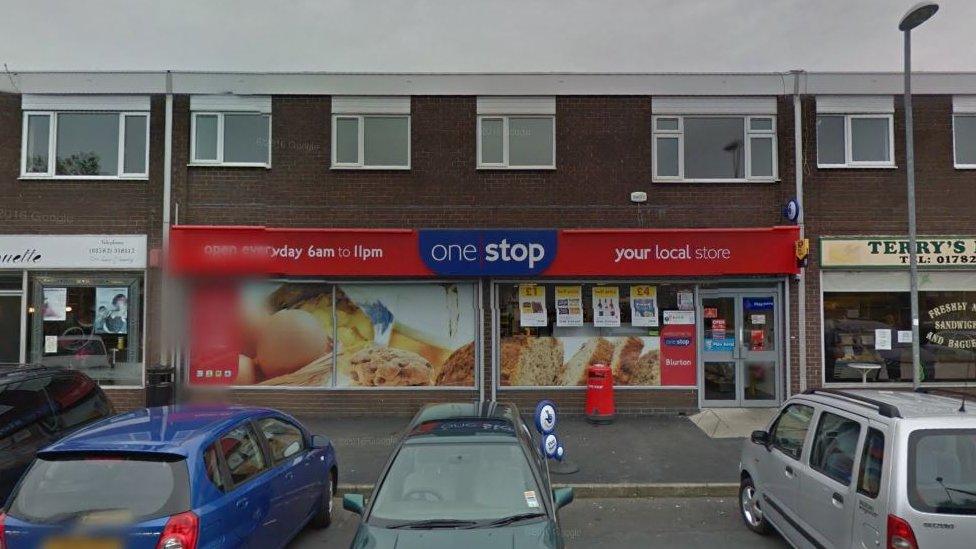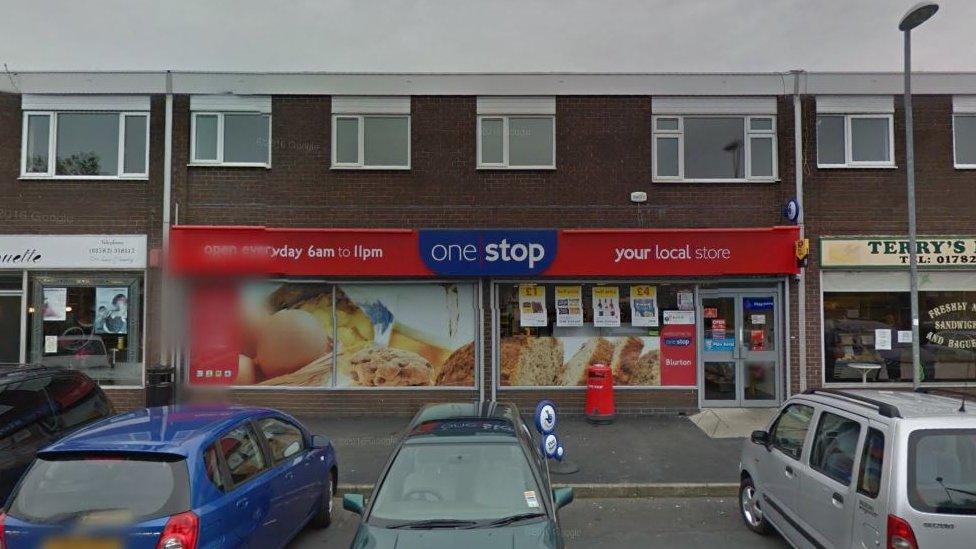What do you do if you find £20 - is it finders keepers, losers weepers?
- Published

A woman who kept a £20 note she found in a shop has been convicted of theft in a case that has prompted a combination of surprise and alarm for some people who think they might have done the same. But what rights do people have if they find something that belongs to someone else?
"Finders keepers, losers weepers" is an old adage that will be familiar to anyone who has lost something and seen it fall into someone else's hands.
But does that principle - effectively saying "tough luck, it's theirs now" - actually stand up to legal scrutiny?
A flurry of reaction to the case on social media saw protagonist Nicole Bailey dubbed either "morally wrong" for trousering the £20 note or the victim of harsh treatment for being hauled through the courts.
Bailey, from Blurton in Stoke-on-Trent, was ordered to pay out a total sum more than eight times as much as she pocketed - £20 in compensation, a £20 victim surcharge and £135 in court costs.
Prof Robert Chambers, an expert in private law at King's College London, said finders did have a right to keep something they discovered, but the "person who lost it still had a right to have it returned".
And the loser had a bigger right in law than the finder, he said.

Police said the man was in the shop after withdrawing money from a nearby cash machine
The Theft Act 1968 sets out the rules, Prof Chambers said.
The act reads: "A person is guilty of theft if he dishonestly appropriates property belonging to another with the intention of permanently depriving the other of it.
"A person's appropriation of property belonging to another is not to be regarded as dishonest… if he appropriates the property in the belief that the person to whom the property belongs cannot be discovered by taking reasonable steps."
The definition of "reasonable steps" would differ depending on the location where the discovery was made, Prof Chambers said.
"If you are on the street you could reasonably believe you don't have a chance of finding the person who lost what you found," Prof Chambers said. "Whereas if you find a lost object in a shop it may not be so difficult to find the person who lost it [by asking in the shop]."
The case has provoked a mix of confusion, sympathy and condemnation for the woman found to be a thief by the courts.
On the BBC Radio Stoke Facebook page, Mick Burgess posted, external: "I'm sure most folk would pocket the find too but a police caution would have been sufficient without wasting money on a court case."

Ch Insp Karen Stevenson, from Staffordshire Police, urged anyone who found lost money to "do the right thing"
Matt Bennion wrote, external: "I feel sorry for her as I would have done the same thing, didn't know it would go down as theft."
While Janet Flavell responded, external: "I must admit, if I found it in a shop I would have handed it in to a member of staff. Finding it on the street is a different matter. Still shouldn't be theft though."
Ch Insp Karen Stevenson, from Staffordshire Police, the force that dealt with Bailey's offence, urged anyone who found lost money to "do the right thing".
"Morally, the right thing to do is hand in any found property so that the person who has lost out has every opportunity to be reunited with it."
Prof Chambers cites an example very close to home to make another point.
"If you make a reasonable attempt to find the person who lost it and they don't come forward, you could keep [your discovery] with a clear conscience," he said.
When his son Tom was aged seven, he found a watch in a shop while the family were visiting Canada. Tom handed it to the shopkeeper with his contact details and said he would like the watch back if its owner could not be found, Prof Chambers said.
The shopkeeper did not have any success but later sent the watch on to the boy at their then home in Australia.
Correction 2 March 2017: An earlier version of this story contained an image of the wrong shop. This has now been amended.
- Published28 February 2017
